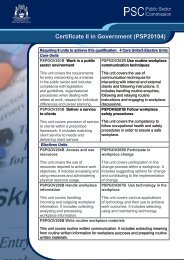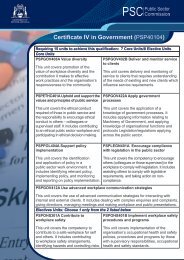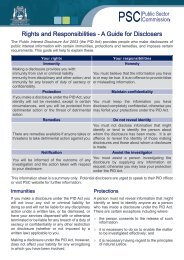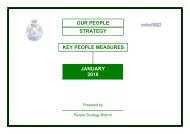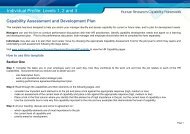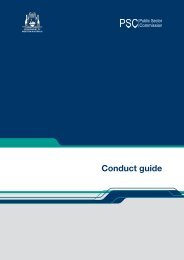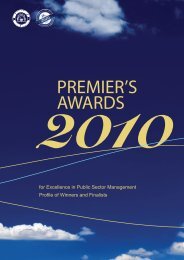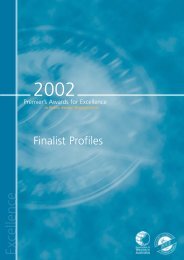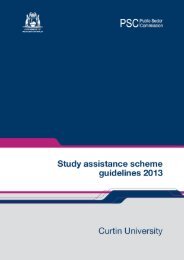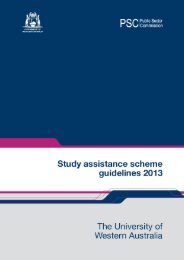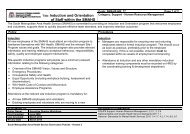Archived document - Public Sector Commission - The Western ...
Archived document - Public Sector Commission - The Western ...
Archived document - Public Sector Commission - The Western ...
Create successful ePaper yourself
Turn your PDF publications into a flip-book with our unique Google optimized e-Paper software.
e-Government Strategy for the <strong>Western</strong> Australian <strong>Public</strong> <strong>Sector</strong><br />
Effecting Change: <strong>The</strong> Key Enablers of e-Government<br />
38<br />
5. Collaborative Relationships – Looking for Synergies<br />
<strong>The</strong> traditional agency approach to planning and development within the<br />
public sector has led to considerable duplication of effort, expertise<br />
and expenditure.<br />
Re-developing applications or systems that are already present in other<br />
agencies has become common practice, with very few agencies looking<br />
outside of their own resource base for knowledge,<br />
ideas or best practice. Transformation to<br />
e-government necessitates that agencies seek to<br />
identify common requirements between their core<br />
business and that of their partner public sector<br />
service providers so as to reduce duplication and<br />
costs at both an agency and whole-of-government<br />
level.<br />
This change in approach opens the door to a range<br />
of collaborative opportunities where agencies can<br />
capitalise on the wealth of skills and information<br />
being maintained across government in relation to<br />
a common customer base.<br />
e-Government can also assist in leveraging<br />
internal efficiencies. For example, the simple<br />
sharing of resource-booking systems can facilitate<br />
more efficient usage of existing government<br />
resources such as conference rooms. More<br />
advanced collaboration will see the sharing of ICT<br />
systems, human resources, knowledge and<br />
business processes.<br />
Through collaboration, agencies can grow a culture of ‘best practice-ship’<br />
whereby mistakes of the past need not be repeated and considerable time<br />
and cost savings can be made in the research and development of new<br />
modes of service delivery.<br />
<strong>The</strong> Role of OeG<br />
<strong>The</strong> Shared Land Information<br />
Platform (SLIP) project demonstrates<br />
the principle of cross-agency<br />
collaboration at work within the<br />
<strong>Western</strong> Australian Government.<br />
SLIP’s lead agency, the Department of<br />
Land Information, is working with other<br />
agencies to deliver a shared resource<br />
for managing and disseminating land<br />
information for a variety of businessspecific<br />
purposes. SLIP represents a<br />
standards-based approach that reduces<br />
infrastructure and system maintenance<br />
costs for all participating agencies, but<br />
also provides for the opportunity<br />
for a combination of services that<br />
were previously prohibited by<br />
independent approaches.<br />
OeG will drive collaboration in e-government projects through the<br />
development of key governance and policy<br />
frameworks required to facilitate cross-agency<br />
initiatives. This process will proceed in conjunction<br />
with other central agencies such as the Department<br />
of Treasury and Finance.<br />
OeG is working to identify areas where internal<br />
efficiencies can be leveraged across the public<br />
sector through collaboration. For example,<br />
determining the availability of other government<br />
employees across agencies would be made easier<br />
through a common groupware system.<br />
OeG will also serve as a conduit between agencies<br />
for the sharing of information about planned ICT<br />
projects. Where appropriate, OeG may also initiate<br />
cross-agency projects in conjunction with a<br />
lead agency.



